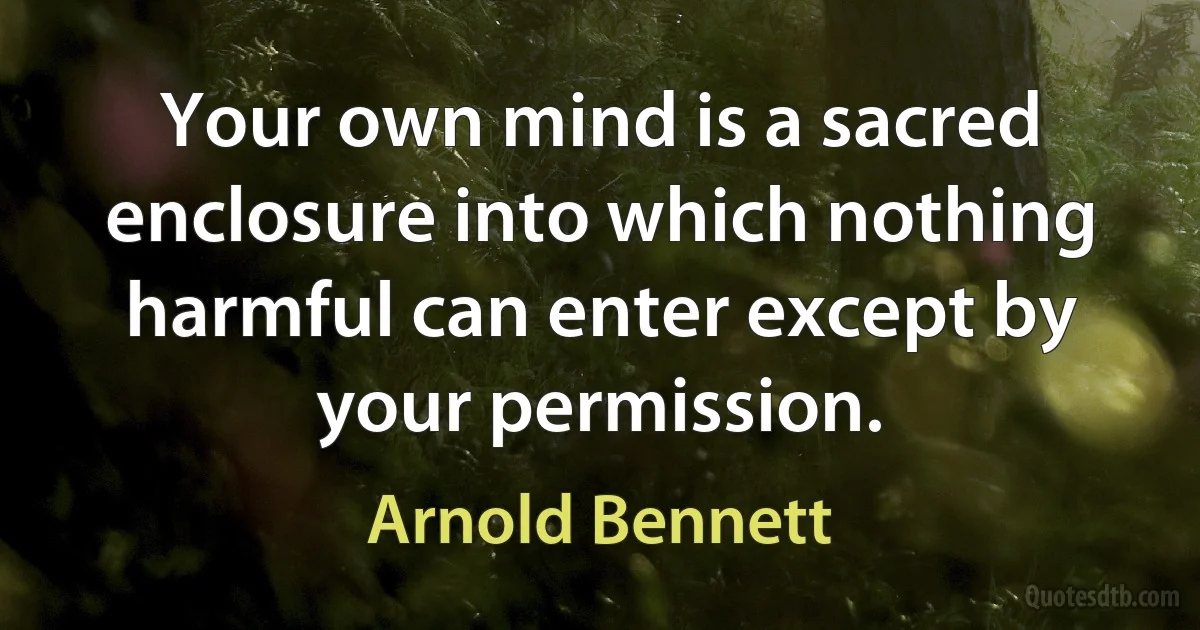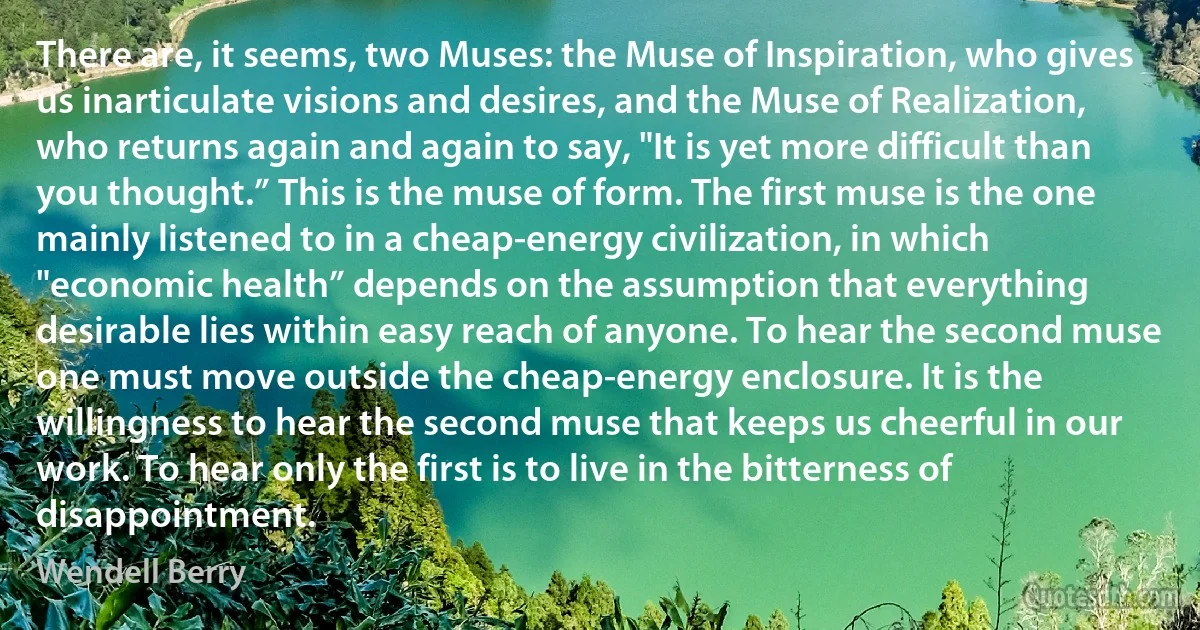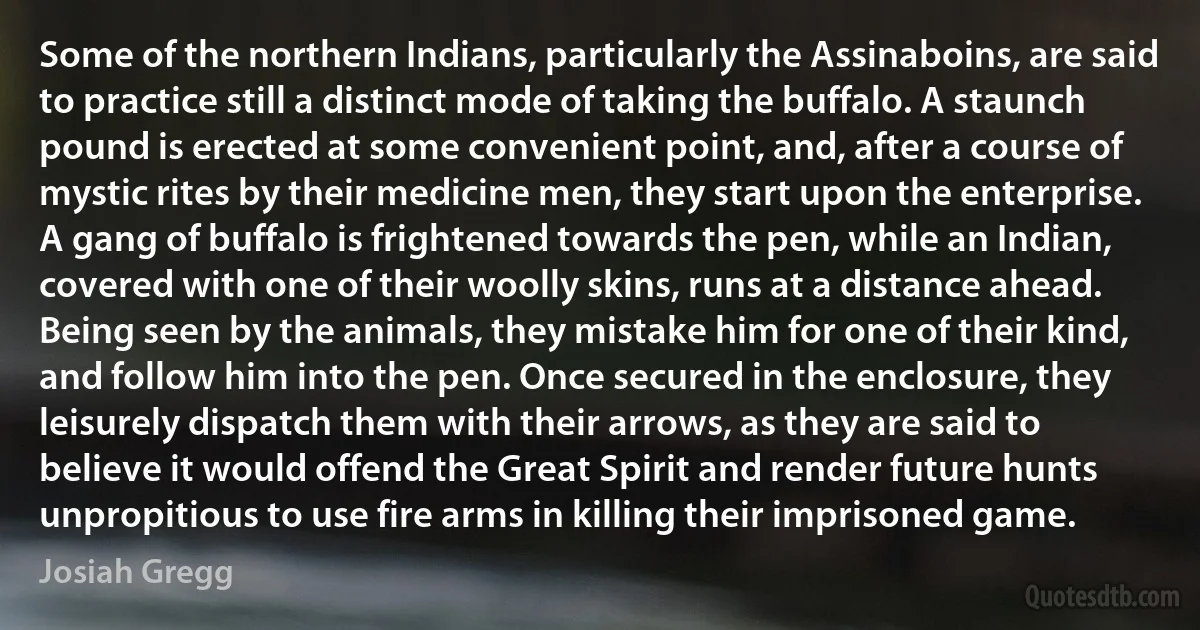Enclosure Quotes
Confined within this catch-all concept, within this vast encampment of the animal, in this general singular, within the strict enclosure of this definite article ("the Animal” and not "animals”), as in a virgin forest, a zoo, a hunting or fishing ground, a paddock or an abattoir, a space of domestication, are all the living things that man does not recognize as his fellows, his neighbors, or his brothers.

Jacques Derrida
The problems with software are just examples of the problems found generally with creativity. Our trend in copyright law has been to enclose as much as we can; the consequence of this enclosure is a stifling of creativity and innovation. If the Internet teaches us anything, it is that great value comes from leaving core resources in a commons, where they're free for people to build upon as they see fit.

Lawrence Lessig
Stop to consider how the so-called owners of the land got hold of it. They simply seized it by force, afterwards hiring lawyers to provide them with title-deeds. In the case of the enclosure of the common lands, which was going on from about 1600 to 1850, the land-grabbers did not even have the excuse of being foreign conquerors; they were quite frankly taking the heritage of their own countrymen, upon no sort of pretext except that they had the power to do so.

George Orwell
Thank you for your letter and for the enclosure which I return herewith. I have been wondering whether there is any means of preventing the confusion between you and me, and I half-thought that we might write a joint letter to The Times in the following terms: Sir, To prevent the continuation of confusions which frequently occur, we beg to state that neither of us is the other. Do you think this would be a good plan?

Bertrand Russell
As enclosure by the lords increased national productivity by denying the individual peasant to keep a few sheep, so the encroachment of the loudspeaker has destroyed that silence which so far had given each man and woman his or her proper and equal voice. Unless you have access to a loudspeaker, you now are silenced.

Ivan Illich
But with the passing of time, a peasant became a tribal and from tribal a beast. William Finch, writing at Agra about 1610 C. E., describes how Jahangir and his nobles treated them - during Shikar. A favourite form of sport in Mughal India was the Kamargha, which consisted in enclosing a tract of country by a line of guards, and then gradually contracting the enclosure until a large quantity of game was encircled in a space of convenient size. "Whatever is taken in this enclosure” (Kamargha or human circle), writes Finch, "is called the king's shikar or game, whether men or beasts... The beasts taken, if man's meat, are sold... if men they remain the King's slaves, which he sends yearly to Kabul to barter for horses and dogs: these being poor, miserable, thievish people, that live in woods and deserts, little differing from beasts.”89 W. H. Moreland adds: "Other writer (also) tell it besides Finch.”.

Jahangir
Close to the Gates a spacious Garden lies, From the Storms defended and inclement Skies Four Acres was the allotted Space of Ground, Fenc'd with a green Enclosure all around. Tall thriving Trees confessed the fruitful Mold The reddening Apple ripens here to Gold, Here the blue Fig with luscious Juice overflows, With deeper Red the full Pomegranate glows, The Branch here bends beneath the weighty Pear, And verdant Olives flourish round the Year.

Homer
My obsession with wolves hadn't helped past relationships. I had split up with Jan, the mother of my four children, after 11 years together, but there was never any animosity; it was more a case of separation by default. Maybe I never gave that relationship a chance. I was so passionate about wolves that I wonder whether any human relationship could have come close. If I'd had to choose between spending a night in the wolf enclosure or at home, I would probably have chosen the wolves.

Shaun Ellis
I knew that scent was important and I discovered that if I put on different clothes or washed or at different food, the beta male would start nipping me again until he was satisfied that the new smell didn't mean I was going to react differently to his approach or that my mood had changed. The other high-ranking wolves did the same thing, but it didn't involve every wolf in the enclosure. The lower-ranking members of the pack, I was to learn, don't question what the higher-ranking members decide; they are foot soldiers - they have an important job to do, but it is not to think for themselves.

Shaun Ellis
The Church is an enclosure, if you are within, the wolf cannot enter, but if you stray outside the wild beasts will get you...Do not wander from the Church; there is nothing more impregnable than the Church. She is your hope and your salvation. She is higher than the heavens, firmer than rock, wider than the world; she never grows old, but is forever renewing her youth.

John Chrysostom
Some say that the body (σῶμα) is the "tomb" (σῆμα) of the soul, their notion being that the soul is buried in the present life; and again, because by its means the soul gives any signs which it gives, it is for this reason also properly called "sign" (σῆμα). But I think it most likely that the Orphic poets gave this name, with the idea that the soul is undergoing punishment for something; they think it has the body as an enclosure to keep it safe, like a prison, and this is, as the name itself denotes, the "safe" (σῶμα) for the soul, until the penalty is paid, and not even a letter needs to be changed.

Plato



